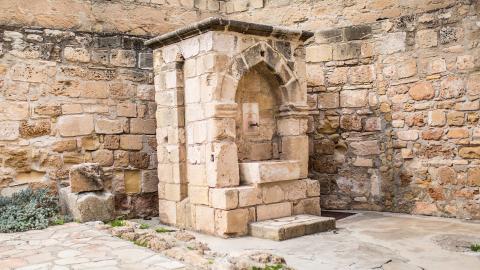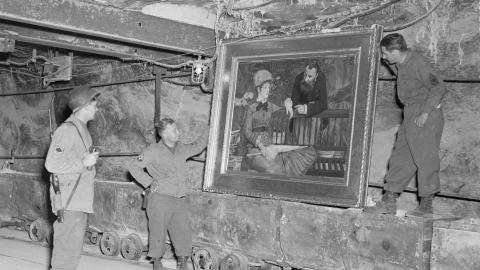Just after midnight on Christmas morning, the majority of German troops engaged in World War I in the region of Ypres, Belgium cease firing their guns and artillery and commence to sing Christmas carols, including ‘Stille Nacht’ (‘Silent Night’). At certain points along the eastern and western fronts, the soldiers of Russia, France, and Britain even heard brass bands joining the Germans in their joyous singing.At the first light of dawn, many of the German soldiers emerged from their trenches and approached the Allied lines across no-man's-land, calling out "Merry Christmas" in their enemies' native tongues. At first, the Allied soldiers feared it was a trick, but seeing the Germans unarmed they climbed out of their trenches and shook hands with the enemy soldiers.
The men exchanged presents of cigarettes and plum puddings and sang carols and songs. There was even a documented case of soldiers from opposing sides playing a good-natured game of football. The truce also allowed both sides to gather and bury their dead with honour. At one funeral, soldiers from both sides gathered to recite a passage from the 23rd Psalm.The so-called Christmas Truce of 1914 came only five months after the outbreak of war in Europe and was one of the last examples of the outdated notion of chivalry between enemies in warfare. There is anecdotal evidence of an informal armistice observed by both sides along the Western front, especially in the latter stages of the war, where artillery shelling was conducted at precise points and at precise times so that casualties were limited. With great advances made in technology in the years between World War I and II, opposing forces no longer had to face each other in the trenches, and thus an informal truce on the scale of that seen in 1914 never happened again.








